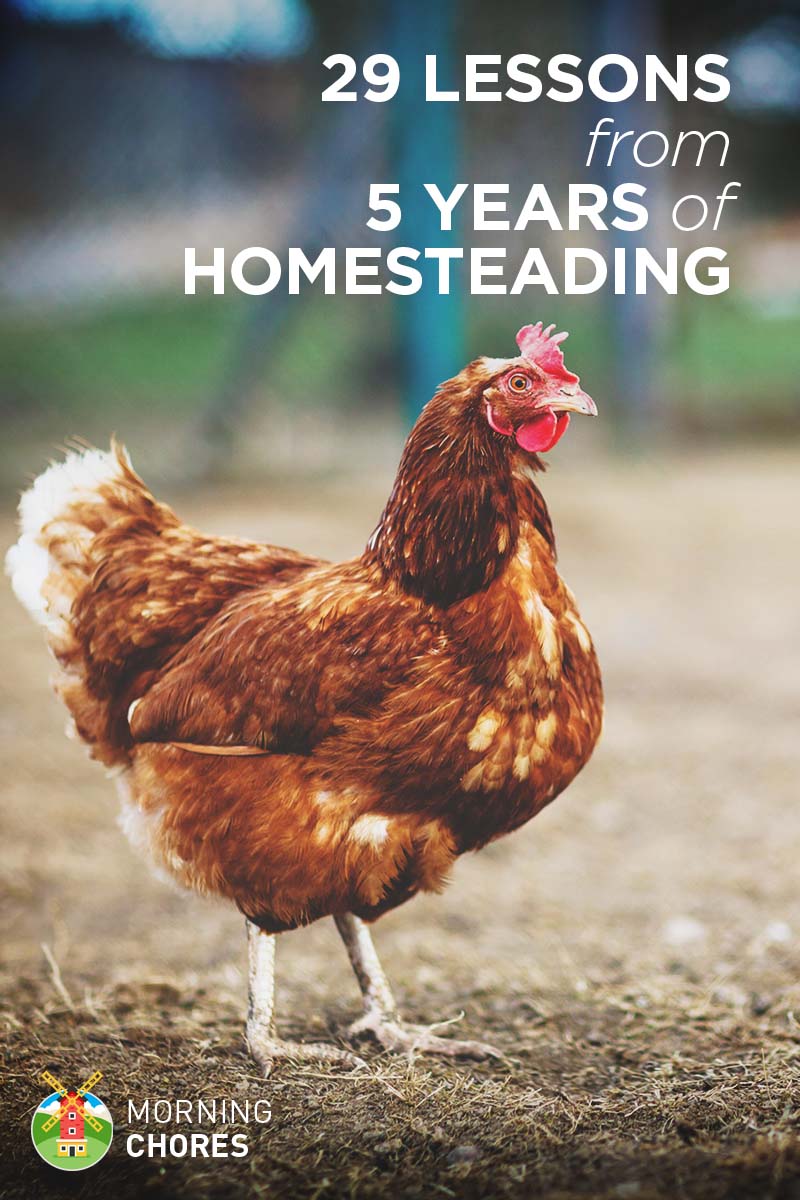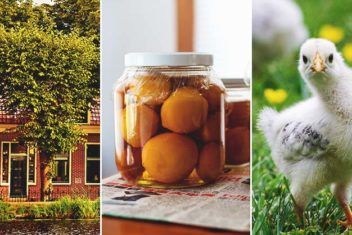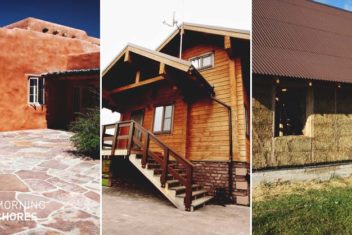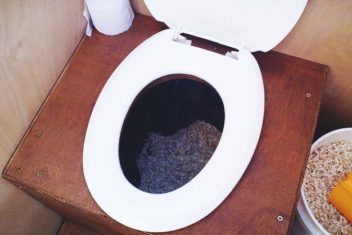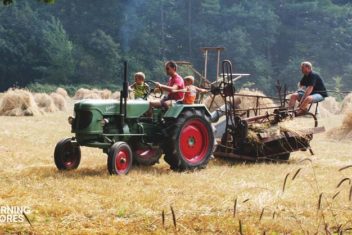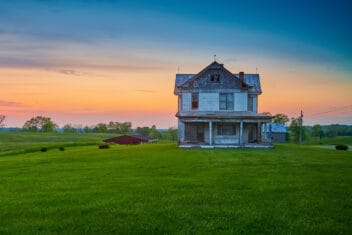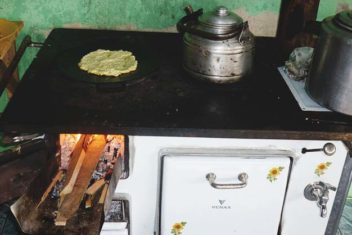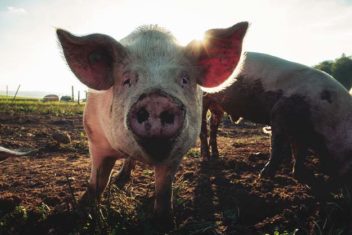I began homesteading almost 5 years ago.
We built our little homestead from scratch, and I have to admit, homesteading is nothing like what I thought it would be.
I envisioned this sweet little life like the “Little House On The Prairie.” However, it is really hard work.
Would I give it up? Not in a million years!
I love what we do. Even though it is challenging, I have learned more through this lifestyle than I ever thought possible.
These are the lessons homesteading has taught me so far:
1. The Patience of the Job
Before I started homesteading, I considered myself to be very impatient.
Let’s get real, I’m only 5 years in so I’m still not quite as patient as I’d like to be. However, I am a work in progress.
I have learned through lots of tough times starting a homestead that patience is your only option.
Homesteading doesn’t happen overnight; building a homestead from scratch doesn’t happen overnight; it all requires time. Lots and lots of time.
Sit back and enjoy the ride and don’t freak out if it doesn’t all come together like you thought it would.
2. Major Appreciation
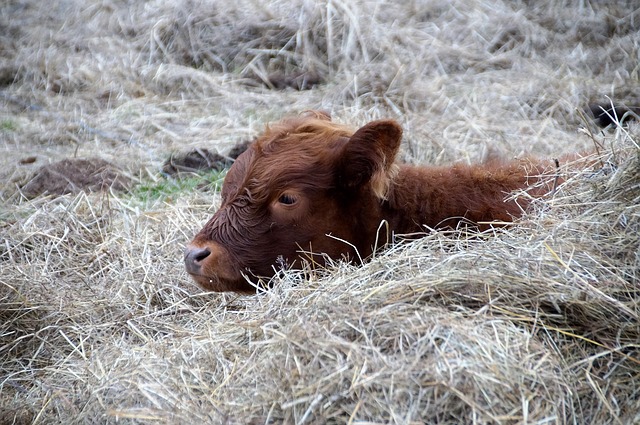
Before homesteading, I never thought about the work someone put into growing the food I ate.
I never walked down the meat aisle at the grocery store and thought, “Thank you, cow!”, I honestly didn’t really think, period.
I just strolled through the supermarket with no regard for my food, where it came from, or the life that was laid down so I could eat that cheeseburger.
After sweating all summer to raise enough vegetables to feed my large family and raising calves and other sweet baby animals into adulthood so I can have meat, I assure you I thoroughly appreciate my food.
More than that, I appreciate all that I have.
My house is not perfect. We purchased it for a very low price because it had been foreclosed on twice. It had never really been loved.
Our land was used as a dumping ground. It has taken a lot of blood, sweat, and tears to turn this abandoned place into a home and a homestead.
I appreciate this place more than anywhere else I’ve ever lived in my life. It isn’t the newest, the prettiest, or even completely finished being remodeled, but I’m proud of it because we’ve worked very hard to call this place our home.
3. The Value of Life
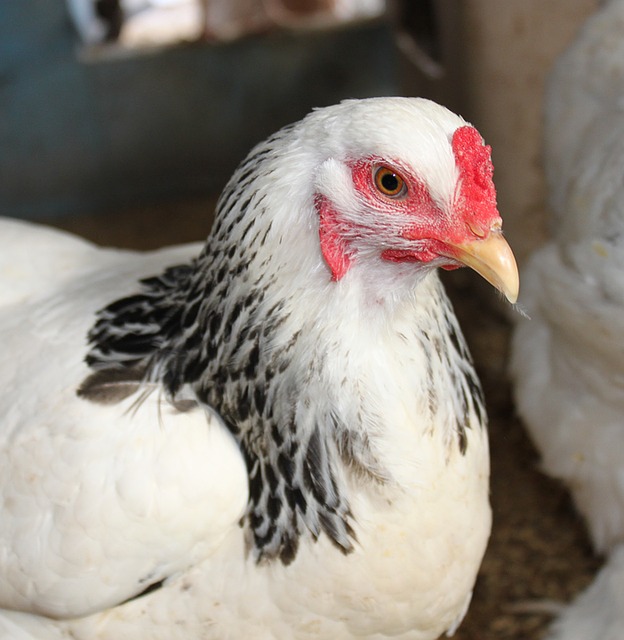
I was not raised on a farm. Actually, quite the opposite. I grew up in the suburbs. I had no animal beyond a cat growing up.
Obviously, the death of a pet is hard. Yet, when you raise an animal from birth, you feed it, love it, give it a great quality of life, and then see that animal sacrifice itself so you can eat… you realize the value of life. To learn how best to cope with this, read this article on preventing attachment to meat animals.
Before we moved to our homestead, our children ran around mimicking what they saw on TV. They played out all of the action stuff that little boys see in cartoons.
It was very common to hear them say (much to my dismay) that they would ‘kill’ something.
After raising all of our animals and truly seeing how valuable life is, they don’t do that anymore. It is very different once you put a face on your food.
4. Heartbreak is Inevitable
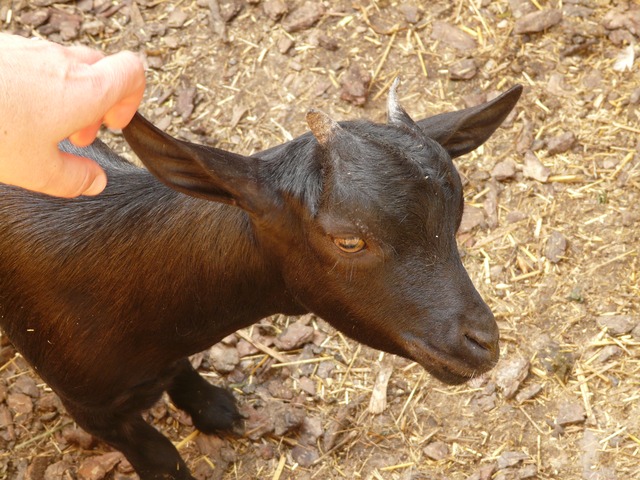
When you put your time and effort into raising vegetables from seed only to have your 10-year-old drop them on the back porch on the way to the cold frame to start hardening them off, that will break your heart.
When you have a goat that has never kidded before, yet when she does, she has an extremely complicated birth that almost kills her and does kill two out of the three babies she tried so desperately to deliver. That will break your heart.
When you have a rabbit attacked by a stray dog and awake to a partially demolished cage and traces of your prized rabbit that will break your heart.
I could go on and on. It is part of homesteading.
Predators are a part of homesteading. Difficult births are a part of homesteading. Crops not thriving are a part of homesteading.
You just have to accept that as much as a homestead will fill your heart, it will also break it.
5. Organization Matters
This was a huge lesson for us. I am the organization queen, but unfortunately, my husband is not on the same page.
He can throw stuff down or leave stuff out, and it does not phase him.
Yet, when you need something and can’t find it, it becomes a problem.
When you find yourself having to repurchase things because they got lost, it is a problem.
In order to save yourself a lot of money, do yourself a favor and get organized from the start.
6. Skip the Fancy Gizmos
People know there is still money to be made off of homesteaders. That is why they create all of these fancy gizmos for everything under the sun.
We used to buy into it all until we realized simple is usually better.
One example is our chicken waterer. We bought this special waterer that had special nozzles meant for the chickens to peck at and then they’d get water.
The whole idea was the water would stay clean.
We eventually discovered that chickens like to gulp water. I put a 5-gallon bucket of water in their area along with the chicken waterer.
They love the 5-gallon water bucket and will only drink out of their ‘fancy’ waterer if they are forced to.
7. Homesteads Don’t Have to be Expensive
A lot of times you see all of these beautiful homesteads on the internet, and you think, “That has to be expensive.”
When you start your own homestead, don’t think it has to be costly. And it doesn’t have to.
You can build a lot of items for free. You can raise and feed animals inexpensively. It just takes some thriftiness.
We purchased and had built our homestead for around $70,000. That is less than what most people pay for a small house.
We have a larger home and a homestead for that. It can be done. It just takes a little ingenuity.
8. Don’t Forget About Your House
If you are fortunate enough to have a fully finished house when you start out homesteading then you are way ahead of the game.
For a lot of people, they are like us and buy a fixer-upper. Don’t forget about fixing it up.
How you live inside matters too. Just be prepared to juggle for a while.
We started by making our house livable again. We had to lay new floors, paint, etc.
Then we focused a lot of our attention outside.
During the winter months, we refocused on the inside and tried to complete as many remodel projects as we could during those cold months.
9. Adaptability and Failure
Homesteading has shown me that I can adapt and learn just about anything.
If you can take a city girl that was totally green about life in general and place her on a homestead where she can learn and toughen up a little then you are pretty adaptable.
I’ve also learned about failure.
One of the hardest failures I faced as a homesteader was when we lost our first goat kids. We knew very little about helping a goat deliver.
Everyone told us, “They rarely have difficulties.” However, ours did.
I failed to do more research. I failed to be prepared.
And it cost me dearly. We lost two baby goats and were within a hair of losing our nanny.
I learned from that failure, and as I type this, I have three healthy goat kids laying around outside with their mothers.
10. Don’t be Lazy and Don’t Forget to Plan
You can’t ever be lazy when you homestead. I learned this the hard way.
If you are lazy and push stuff off then you usually end up paying a price down the road.
It can be a literal price by paying more for something you needed because you didn’t buy it during the right season. Or, a physical price meaning your crops or animals suffer because you didn’t do what you should have when you should have.
This goes hand in hand with planning. You have to plan as a homesteader. This takes effort, but you can’t be lazy.
We didn’t always plan accordingly before we got new animals.
For instance, we built our pigs this cute little area thinking how much they’d love it.
We didn’t plan and didn’t think of how strong pigs are or how destructive they are.
They practically had the place torn apart in a few days. It was ridiculous. You plan to fail if you fail to plan.
11. Living in the Woods Brings New Responsibility
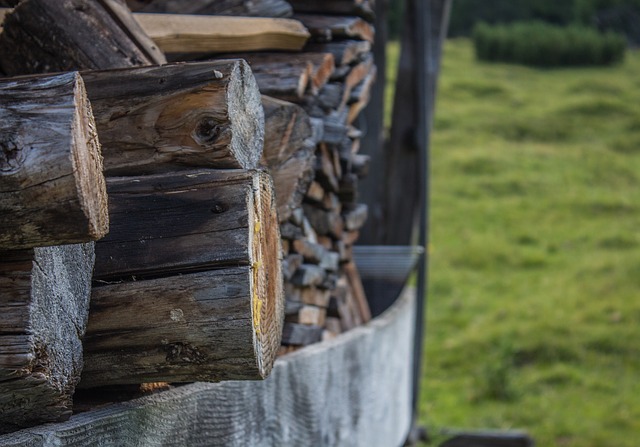
I know there are urban homesteaders, but we just aren’t one of them.
We live in the woods. I’m talking deep in the woods. It’s nice and cozy.
No one comes down to where we are unless they know us, are lost, or were considering being up to no good.
With living in the woods comes the responsibility of the trees.
We lived in our home for years before we ever realized we had a ‘widow maker’ hovering over our house.
A nice man that worked for a tree trimming company happened to be on our road doing maintenance around the powerlines. We live on a private road, so this was a rarity.
He happened to look over and saw it. He came to our house and asked if we knew we had such a deadly tree on our property.
When we took a look, the thing was totally dead. It was a miracle it hadn’t fallen on our house yet.
He came back a week later and cut it down.
We now pay very close attention to the trees around our house.
12. You Need a Big Truck
This was a lesson I did not learn soon enough. When we first started homesteading, I drove a minivan.
I told you I was from suburbia. My husband kept saying, “We need to buy a truck. Even an old one.”
I was stubborn and honestly thought he was trying to get a new vehicle out of the situation. We hung on to our minivan for years.
We hauled everything from feed, hay, goats, and even a pig in the back of that thing.
By the time we purchased a new truck, I had never been so thankful.
It is feasible to homestead without a truck, I guess, but I don’t recommend it.
13. You Need the Internet
Cutting down on things to lessen the financial load is a smart move. However, do not cut your internet. You need it.
The internet is where you can learn about all of the things you have no idea about. You can learn so much from what other people share.
It helps cut out some of the trial and error process.
Be thankful for the internet and hang on to it.
14. Tools Are a Must
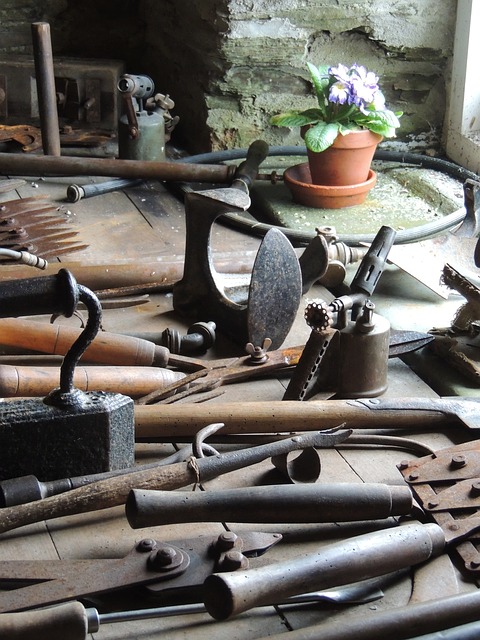
You need professional-grade, cordless tools. You can’t scrimp on them.
Homesteading requires a lot of building. You will need good quality tools. They may be expensive initially, but they will last for years to come.
When you can afford them, buy them.
Treat them kindly, and you’ll be amazed at how much you can get done with them.
15. A Tractor Is a Must
We purchased our tractor second hand. More like a classic, really. It didn’t cost us that much, but it has been so beneficial.
The only thing I would do over is it does not have a loader on it.
If you are able to buy a tractor with a loader, do it. It makes life so much easier.
16. All of Your Work Shoes are Going to be Covered
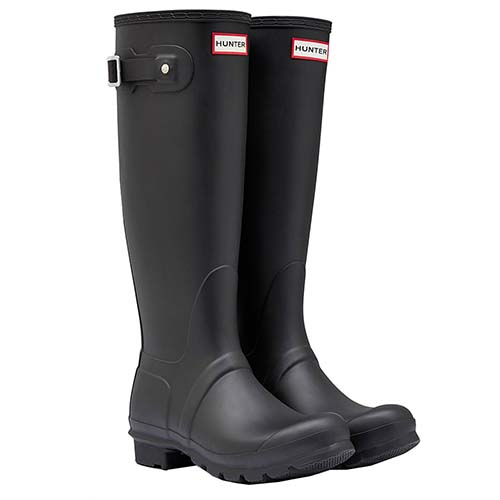
This is something I was not prepared for when we started homesteading. Every pair of shoes I wear outside becomes nasty in one trip.
It is impossible to not step in something when living on a homestead.
I have since wised up and learned only to wear one pair of shoes outside. They are waterproof and very easy to clean.
We now have a mudroom and a place to store all of the nasty shoes that I do not want to be tracked in the house.
17. Don’t Be Afraid of Your Animals
When we first started homesteading, we didn’t plan on having a lot of animals. We actually just wanted a few chickens for the eggs and a large garden.
Then we got the idea of keeping a few goats. It just exploded from there.
As I mentioned, I grew up in the city with a cat. I was petrified of some of our animals.
I have since learned that I am the one in control. If I’m not, then they are, and that is not a good position to put yourself in.
I don’t care how large the animal is, how large its horns are, or how powerful it is. If you are living on my homestead, we will respect one another, or you won’t be around long. Period.
You can love your animals while still maintaining control. This is an important balance to have on the homestead.
18. Stick to Your Gardening Methods
We have killed our garden so many times with experimental ideas. We couldn’t decide how we wanted to garden.
There is tilling your garden and not worry about being organic. And you can till it but remain organic.
You can also be organic and not till it. Every year social media explodes with new gardening ideas. For years we would read something and try it. Then mix it with another idea.
We burnt our garden up for at least 2 years in a row.
Then, we finally realized that we needed to try one method at a time. Whatever worked the best we would stick to.
We have had great success ever since.
19. Start Your Own Seeds
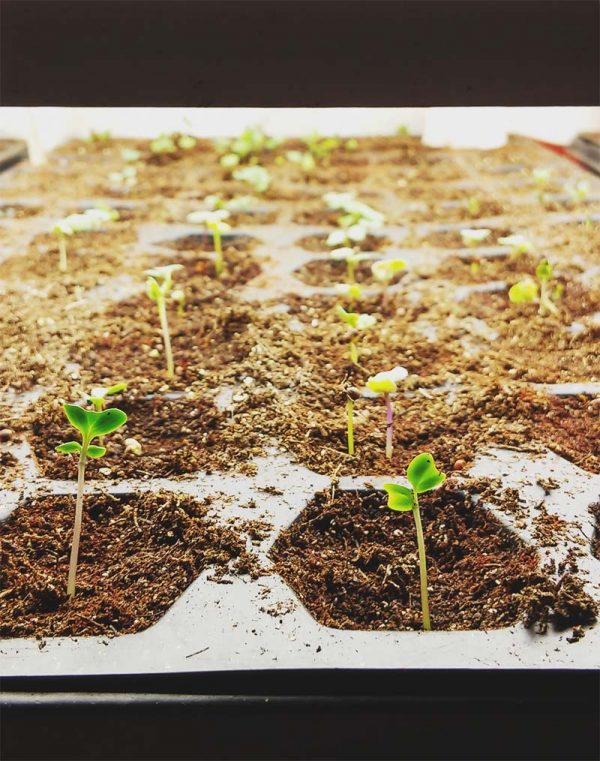
When we first got started, we purchased our garden from nurseries. It was still cheaper than grocery shopping.
However, it got expensive. We now start all of our plants from seeds.
They look amazing, they grow amazingly, and it cost us next to nothing to grow a large garden.
To me, this is the only way to go.
20. Don’t Keep a Mean Rooster
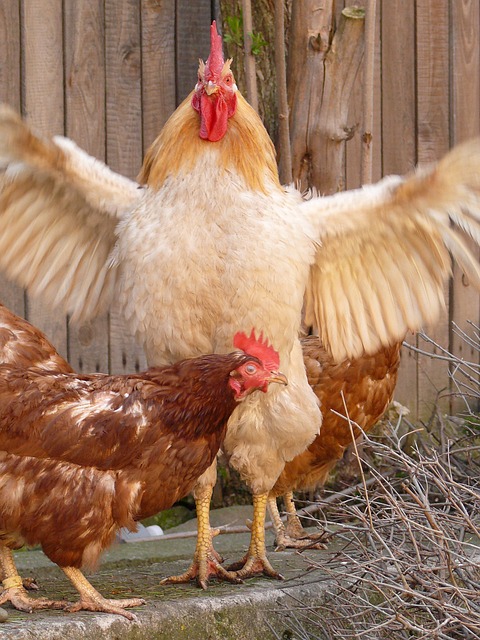
The first rooster we ever had was a Rhode Island Red. We got him with four Rhode Island Red Hens.
He was a beautiful bird, and my husband loved him.
I was out in the yard one-day taking clothes down off of the line when he came up to our youngest who was only about three at the time and flogged him.
I had never been around a rooster before and therefore had no idea what he was doing.
There I stood screaming for my husband in the middle of the yard. It was quite a sight.
He didn’t hurt him, thankfully. However, we kept the bird anyway and just decided to keep him in the coop. It got to a point where no one would go in the coop because of him.
When he started growing spurs and got really aggressive, my husband sold him to a friend.
When he got aggressive with his new owner, he finally got put down.
I regret that. If I had to do it over again, I would’ve put him in the freezer when he first flogged.
However, if you have a mean animal, you need to realize that there are other animals that are not mean. The rooster that we have now is a doll! We love him.
How foolish we feel for living in a torment of a bird for over a year when we could’ve had a tasty meal out of him and lived in peace with a friendly bird that is still a great protector of our hens.
21. You Don’t Have to Use Commercial Feed
For someone who had never done any of this before, my initial thought was we’d just buy all of our animals’ food. Yeah right.
Not unless I wanted to go broke really fast.
Instead, we started finding alternative methods of feeding our animals while supplementing if needed with commercial food.
Our goats eat mostly hay. We feed our rabbits a mixture of hay, fodder, and pellets.
Our chickens eat fresh grains from a flour mill up the road and a few other homegrown items.
While our pigs eat a wide variety of items as well. I could go on and on.
My point is, there are other options besides buying all commercial food to feed your livestock. Knowing your options can save you a lot of money in the long run.
22. Always Track Your Animals
We were terrible about this for the longest time.
Keep a homesteading journal, calendar, notebook, something that will help you track your animal’s production.
You need to know when certain animals have been bred so you’ll know when to expect babies.
You need to know how many eggs your chickens produce to see if their production is falling. You’ll also need to keep up with items like milk production.
Also knowing when babies are born is important so you can know when they can be sold or butchered.
This is a habit that you need to develop sooner rather than later.
It makes things very difficult if you are guessing versus actually knowing what your homestead is doing.
23. Plug the Holes on the Grow out Pen
We raise meat rabbits. They live in hutches because they are happier that way. I learned that lesson the hard way.
I like to let our animals free-range if at all possible so in my mind, “Why should our rabbits be any different?” Yeah right.
We created a pen for them that allowed them to go in and out of their hutches and have a ‘free-range area.’
This was great until they started digging to China!
We thought at first that they were just burrowing and not digging full-blown tunnels.
We were a little green, if you can’t tell.
After all of our rabbits had babies, the tunnels started showing up. We had baby bunnies running all over the place.
We still use the pen for a grow-out area but have since learned to plug the holes when they start.
Our rabbits actually are much happier in their hutches. I think they feel more protected.
It all worked out in the end.
24. Keep Your Goats Happy and They’ll Never Leave
When we first got goats I was afraid they’d get out and be gone. All I read about and heard from goat owners was what escape artists they are.
I’ve learned that if you keep them happy and love them they usually won’t go anywhere.
Our nanny goats were pregnant together and when they wanted specific food they were determined to get it.
They had found a hole in the fence to eat part of a shrub that was outside of their area that they couldn’t reach while inside. So they got out.
Next thing I know, I look out of the kitchen window, and they both were standing at the gate calling to me because they couldn’t get back into their area.
At first, I panicked and thought they’d run for sure.
Luckily they didn’t. I opened their gate, and they trotted right back in and have not attempted to get out since.
I truly believe it’s because we spoil them rotten, and they are happy.
The gate was left open accidentally another time and our billy just went to where the food is kept.
After he got what he wanted, he went back inside.
From my experience (and a few of our friends with goats), spoil your goats rotten, and you’ll never have a problem keeping them home.
25. Use the Farmer’s Almanac for Planting
We live in the foothills of the Appalachian mountains.
I love it here. It is beautiful, and the people are so friendly.
We have had so many people with excellent intentions give us so many old wives tales as to when to plant.
Unfortunately, hardly any of them worked for us. We have since learned to use the Farmer’s Almanac.
Every year it tells you exactly when and what to plant in your area and it has yet to tell us wrong.
We have had much greater success since we started using it, so I highly recommend it.
26. Guineas Are Extremely Noisy Creatures
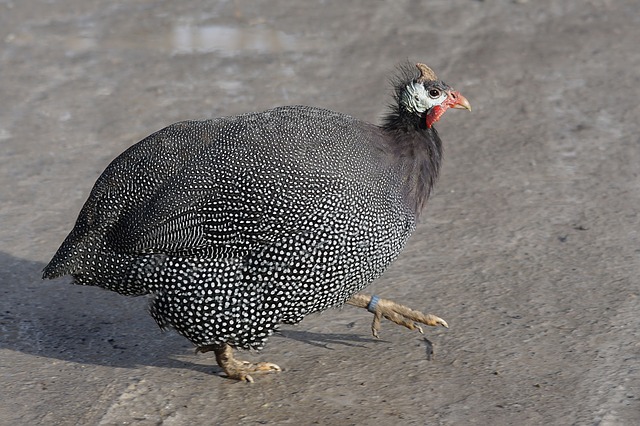
My husband loves guineas.
After our middle son had discovered a tick on him one night that landed us at the doctor’s office, my husband became an even bigger fan of guineas.
The only drawback to them is that they are loud. I’m not talking about a little noisy like a chicken can be at times.
I mean LOUD!
If you are not prepared to hear really loud cackling sounds for most of your day, don’t invest in guineas.
They have many good qualities but their noise level is not one of them. Read more about my guinea fowl experience.
27. When You Spot Illness, Jump on It
We had our chickens fall ill and a baby goat fall ill. With our baby goat, we were quick to move, and he lived.
When our chickens became sick, we were ignorant of what was happening. We didn’t realize that chickens didn’t snore.
If you hear them snoring then they are sick.
By the time we caught on to the fact that we didn’t have a snoring chicken but a chicken with a respiratory problem, a lot of our chickens had caught it.
Illness in the coop moves quickly. It took over a month to get everyone better. Unfortunately, we lost a few chickens as well.
I’m glad for the experience because I learned a lot, but I also hated to lose any of our flock because I wasn’t proactive enough.
28. Plant Your Orchard and Perennials Right Away
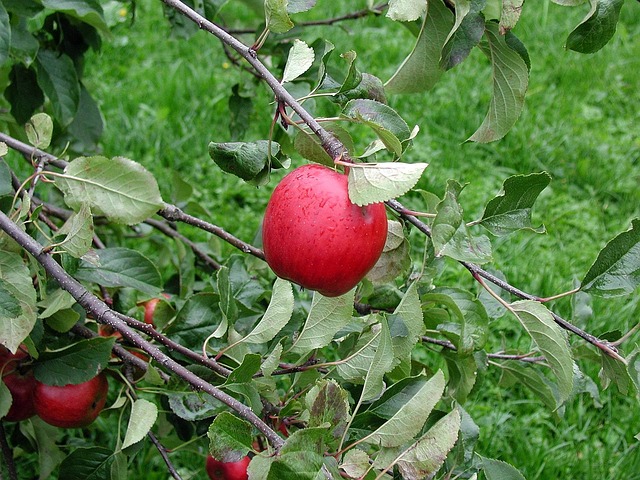
As soon as you branch into homesteading, plant your orchard immediately.
It takes around 5 years for most fruit trees to produce so the sooner you get them planted, the sooner you’ll get produce.
Perennials are the same way. They come back year after year. Each year they come back larger and with better production.
These are really important to go ahead and get in the ground.
29. When Something Goes Wrong, Don’t Panic
When the chickens have gotten into the garden, the pigs have broken out of their pen, or the guineas are on top of the house — don’t panic.
It is hard, I know. However, panicking doesn’t gain you anything but a headache. It is best just to remain calm and deal with situations as they arise.
It took me many years to learn this, and I am still not perfect. Our guineas are one of my greatest enjoyments and biggest headaches too.
They serve a great purpose, but they also cause a lot of mischief.
I woke up one Saturday morning to the sounds of their little feet on our roof. This is normal, so I didn’t think much of it.
When they got down, they decided to take a little road trip to our neighbor’s house.
They didn’t just invade their yard. They took over their coop and started pulling feathers from their chickens.
Then they decided to roost there until my neighbor was kind enough to bring them home. I wanted to stress over that, but I realized there is no point.
I am fortunate to live where we all try to support one another’s homesteading efforts.
When my neighbor’s goats come down and get stuck in our woods, I’ll get them loose and take them home.
My guineas decide to get in trouble, he is kind enough to bring them home.
It will always work out one way or another, so stressing and causing panic doesn’t solve a thing.
These are the lessons I’ve learned through my homesteading experiences so far.
